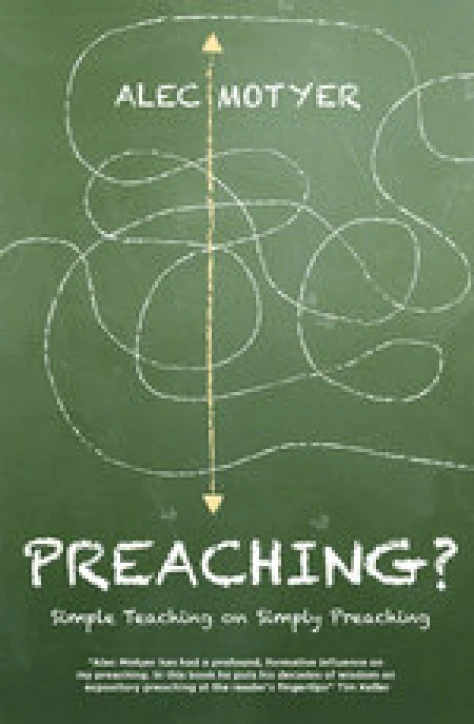Recommended Review: Preaching? Simple Teaching on Simply Preaching
New Releases, Updates and More

Many thanks to James Matichuk (thoughtsprayersandsongs.com) for his 5-star review of Preaching? Simple Teaching on Simply Preaching by Alec Motyer. James' review is featured in its entirety below:
When the opportunity to review a new preaching book by Alec Motyer presented itself, I jumped at the chance. A competent biblical scholar, Motyer has written several commentaries that I have on my shelf (both in paper format and electronic). Notably, his commentaries on Isaiah is essential to anyone who wishes to gain a greater grasp on Isaiah’s prophecy. He is the general editor of the Old Testament for the Bible Speaks Today commentary series (published by IVP) and has contributed several volumes to the series. He is also former principal of Trinity College, Bristol. In Preaching? Simple Teaching on Simply Preaching, Motyer details his approach to expository preaching. He shares wisdom from years of practice with plenty of examples of how to take a text and turn it into a sermon. This is not a ‘one-size-fits-all’ approach to preaching. Motyer writes, “For preaching is a very personal and individual exercise. We can learn from each other, but must not copy each other. It won’t work! Like criminals we must each discover our own modus operandi – find out what is our own brand of murder – and, hopefully, get away with it!” (Kindle Locations 306-308). Without heavy-handedly describing ‘the’ plan for preaching, Motyer shares his advice and insight on how to do it well. As a scholar, pastor, expositor, and preacher with decades of faithful service, he has a lot to say. Motyer’s method is simple (as his subtitle suggests). He tells us to find a text: examine it, analyze it, orient ourselves to it, and harvest from it. The wisdom of his approach is that it forces the preacher to sit under a text rather than use a passage to illustrate their own agenda (or what they think the church ‘needs to hear’). Literary structure, inclusio, word studies and repetitions reveal meaning in the text. Often attention to the broad contours of the passage reveals an apt word for our context. This is what Motyer suggests: study and understand the text, prayerfully submit yourself to the text and pay attention to what God is saying there. When you have done that, you can craft a sermon (harvesting). And yes, he does offer advice on presentation and delivery: what to do and not do, and what to do but not too much. He does have some good words to say about how to draw out applications from a passage. These are all important points and I agree a wholeheartedly with most of what Motyer commends. I have minor disagreements with him in places because as Motyer observes, preaching is a highly personal endeavor. But I have still failed to mention what I think are the most significant insights that Motyer imparts. I appreciated Motyer’s passion for the importance of preaching. Unfolding God’s Word and declaring it to the church gathered is sacred work. Beginning in his early chapters, but throughout this volume, Motyer describes this joyful and serious task and the demands it makes of the would-be-preacher. To preach and preach well is to give attention to the Word and to the church. While Motyer devotes much of this book describing attention to the Word (where we hear the voice of God), to preach well is also to fulfill our pastoral vocation: to pray for the congregation, and be involved in their lives. As Motyer observes, “Our position as ministers in a church gives us the right to preach, but it does not give us the right to be heard”(Kindle Locations 1503-1504). A pastor who is actively caring for the flock and prayerfully attending to their spiritual formation will preach with power. I warmly commend this book to preachers, especially young preachers with little experience. Motyer illustrates his approach by giving several examples of how to exegete a passage and turn it into a sermon. By opening up his process to new preachers, Motyer gives them a gift. Those who follow his method will be brought into an encounter with the Spirit in the text. May all who declare God’s Word do so with such loving attention! I give this book 5 stars.
